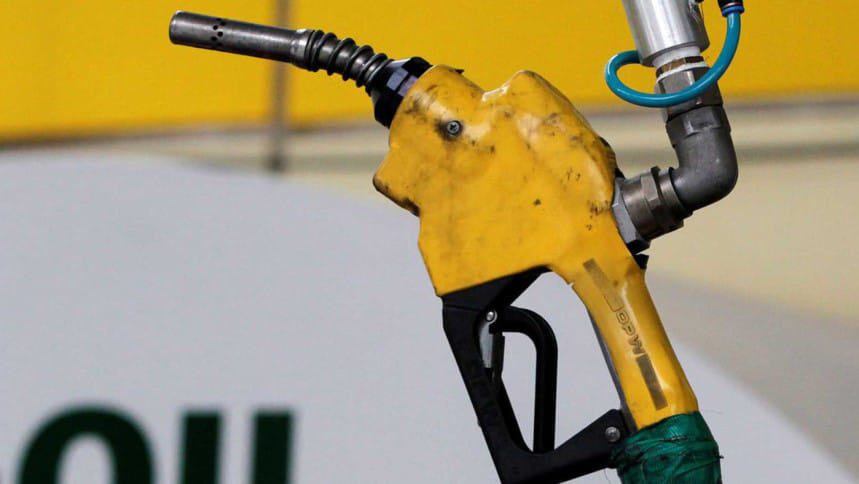Guideline issued for automated price of petroleum fuels

The government today issued a "Fuel Pricing Guidelines" through a gazette notification to set an automated price for the petroleum fuels across the country.
The system will be effective from March.
Under the guidelines, prices of all the petroleum fuels including petrol, diesel, octane, kerosene, furnace oil, jet fuel, marine fuels will be set automatically on the basis of the international market price.
The local prices will go up and down in line with the international price and every month such price will be announced by the government for one-month tenure.
But the automated pricing is not coming into effect from today (March 1) although State Minister for Power, Energy and Mineral Resources Nasrul Hamid had said yesterday that it would be effective from March.
Energy Secretary Md Nurul Alam also said that it won't be effective from today. "Since we have not yet received the prime minister's approval to make the guideline effective, we've to wait for some more days," he said.
"We hope, we'll get the PM's approval soon and will bring it into effect within 10-12 days," he told UNB.
The Fuel Pricing Guidelines, however, giving an example for its effectiveness said that if it is planned to make effective from April 1, the prices of fuels of one month in the international market from February 21 to March 20 has to be taken into consideration to set an average price and then set the price for month of April.
About such contradictory instruction in the guideline, the energy secretary said that such automated pricing system is a new thing in Bangladesh. So, the ministry itself is in some confusions.
"We'll sit with the Bangladesh Petroleum Corporation (BPC) to remove all confusions and make the guideline clear all to all," he said. The BPC is the state agency for importing and marketing of petroleum products across the country.
In case of setting a price for any of the petroleum fuels, all the expenses including the international market price, import tax, advance income tax and valued added tax (VAT), operational expense, finance, administrative and maintenance cost, margins of BPC, VAT, and sale and distribution costs will be taken into account and then set a price.
A source in the Energy Division said that the price of octane will go below the price of diesel as soon as the automated pricing formula is effective.
"This is also a big concern for the government," he said adding that the government wants to keep the octane price higher than diesel," he added.

 For all latest news, follow The Daily Star's Google News channel.
For all latest news, follow The Daily Star's Google News channel. 



Comments